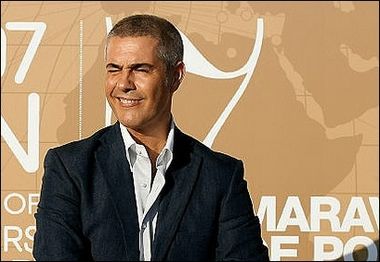 BEIRUT (AFP) – Lebanon’s Byblos Festival will still go ahead this weekend despite continuing political tensions and security worries in the country, the organisers said on Friday. The Mediterranean country’s usually vibrant cultural scene has been massively curtailed since last year’s devastating war
BEIRUT (AFP) – Lebanon’s Byblos Festival will still go ahead this weekend despite continuing political tensions and security worries in the country, the organisers said on Friday. The Mediterranean country’s usually vibrant cultural scene has been massively curtailed since last year’s devastating war
But in Byblos, the show will go on, albeit with fewer stars on the bill than originally planned."We have decided to go ahead with the festival, having considered cancelling it like the other festivals, because of the uncertain atmosphere," festival communications director Mona Hakim told AFP.Festivities kick off on Saturday with a concert by French rockers Nouvelle Vague in the ancient Phoenecian fortress of Jbail, 38 kilometres (24 miles) north of Beirut Italian tenor Alessandro Safina will give two recitals on August 2 and 3, while a Lebanese opera about Zenobie, the legendary queen of Palmyria, will be shown from August 15 to 19.
The festival comes to a close on August 29 with a concert by veteran US funk group Kool and the Gang.
Lebanon’s two main festivals — Beiteddine just outside of Beirut, and the Baalbek Festival in the Bekaa Valley — were earlier cancelled for the second straight year on security concerns, including a concert by Colombian-Lebanese star Shakira.
The Beiteddine organisers did put on a show by maverick British violinist Nigel Kennedy last week in Beirut, and Baalbek spokeswoman Maya Halabi told AFP that they planned to put on some sort of show in October.
Last summer, instead of droves of culture vultures descending on the country, tens of thousands of foreigners fled in a massive evacuation from a war that killed more than 1,200 people in Lebanon, mostly civilians.
Tourism Minister Joseph Sarkis had announced only two months ago that the festivals would go ahead despite a political crisis that has gripped the country since November.
But the army has since been locked in a deadly battle with Islamist militants in northern Lebanon and a string of bomb blasts have struck Beirut and tourist areas.
"We want to change the image of Lebanon with an international media campaign in order to attract tourists again," Sarkis said in May, recalling that Lebanon had been banking in 2006 on a record year in tourism revenues.



